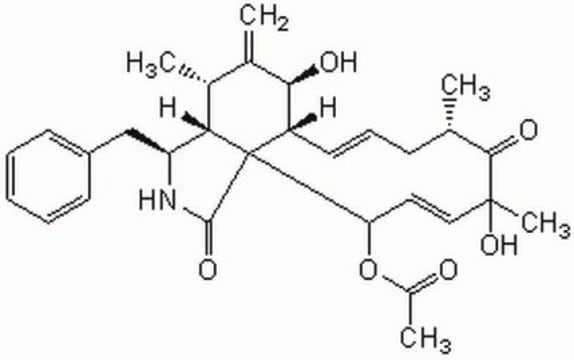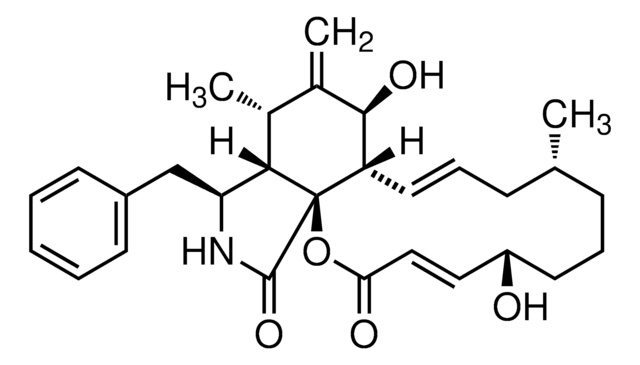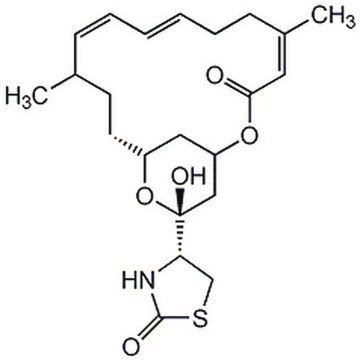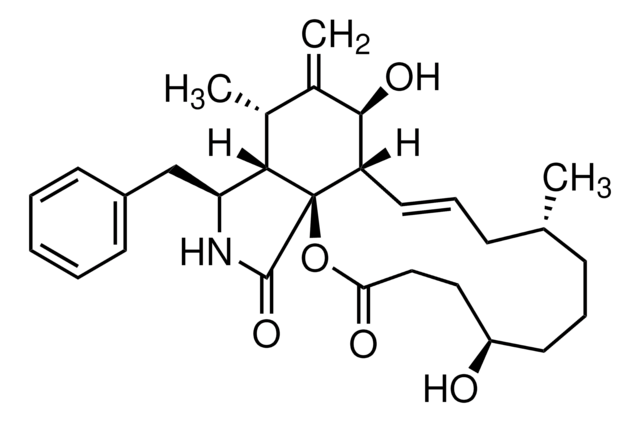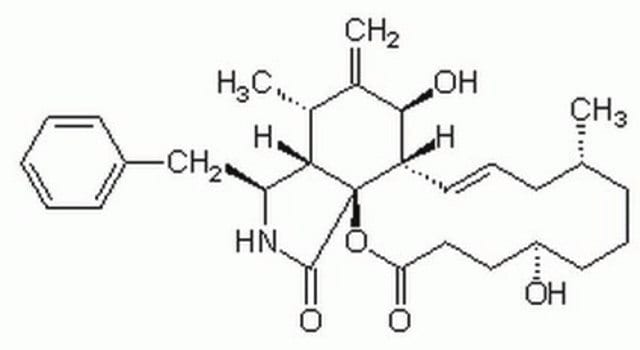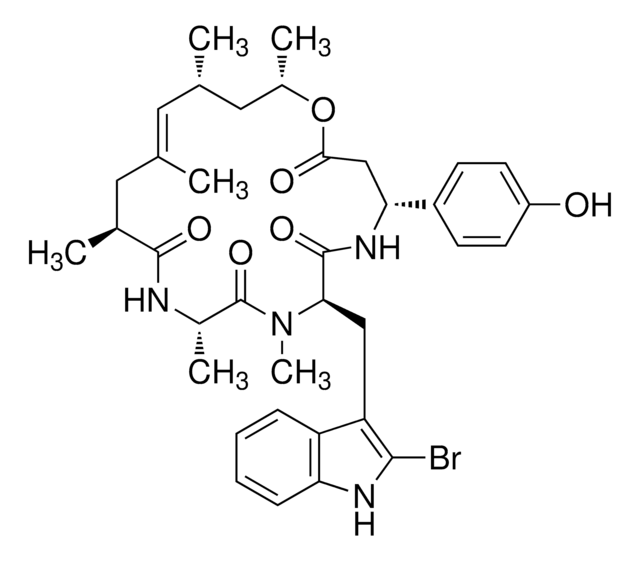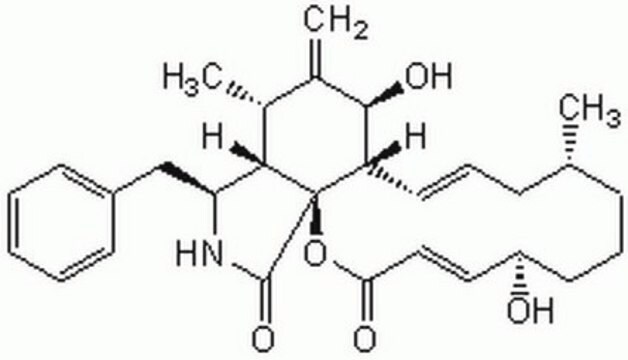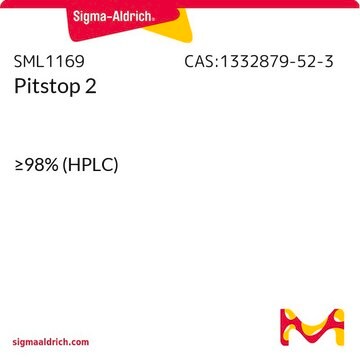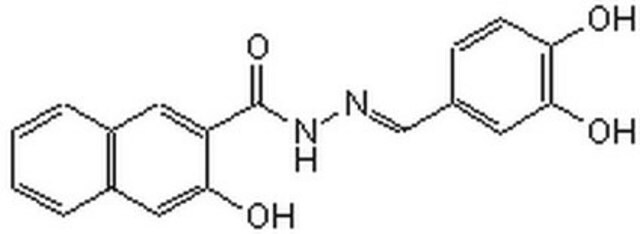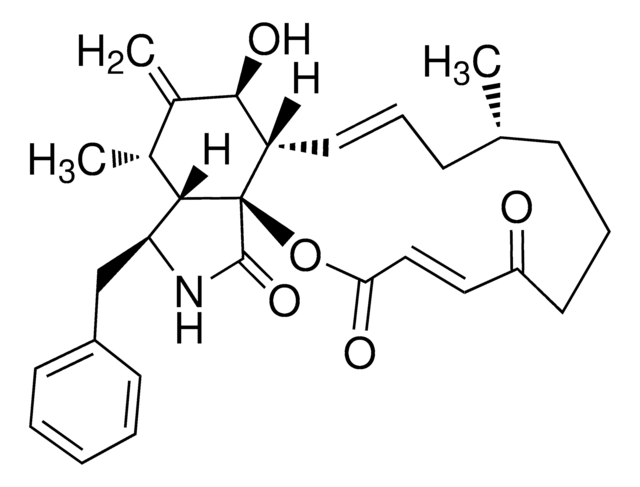C2618
Cytochalasin D
Ready Made Solution, from Zygosporium mansonii, 5 mg/mL in DMSO
Synonym(s):
Lygosporin A, Zygosporin A
About This Item
Recommended Products
biological source
Zygosporium mansonii
Quality Level
form
solution
concentration
5 mg/mL in DMSO
antibiotic activity spectrum
fungi
Mode of action
enzyme | interferes
shipped in
wet ice
storage temp.
−20°C
SMILES string
[H][C@@]12[C@H](C)C(=C)[C@@H](O)[C@@H]3\C=C\C[C@H](C)C(=O)[C@](C)(O)\C=C\[C@@H](OC(C)=O)[C@@]13C(=O)N[C@H]2Cc4ccccc4
InChI
1S/C30H37NO6/c1-17-10-9-13-22-26(33)19(3)18(2)25-23(16-21-11-7-6-8-12-21)31-28(35)30(22,25)24(37-20(4)32)14-15-29(5,36)27(17)34/h6-9,11-15,17-18,22-26,33,36H,3,10,16H2,1-2,4-5H3,(H,31,35)/b13-9+,15-14+/t17-,18+,22-,23-,24+,25-,26+,29+,30+/m0/s1
InChI key
SDZRWUKZFQQKKV-JHADDHBZSA-N
Looking for similar products? Visit Product Comparison Guide
Application
Biochem/physiol Actions
Other Notes
Storage Class Code
10 - Combustible liquids
WGK
WGK 2
Flash Point(F)
188.6 °F - closed cup - Solvent
Flash Point(C)
87 °C - closed cup - Solvent
Personal Protective Equipment
Certificates of Analysis (COA)
Search for Certificates of Analysis (COA) by entering the products Lot/Batch Number. Lot and Batch Numbers can be found on a product’s label following the words ‘Lot’ or ‘Batch’.
Already Own This Product?
Find documentation for the products that you have recently purchased in the Document Library.
Customers Also Viewed
Our team of scientists has experience in all areas of research including Life Science, Material Science, Chemical Synthesis, Chromatography, Analytical and many others.
Contact Technical Service

